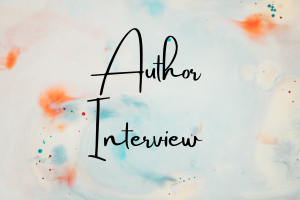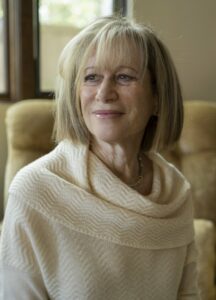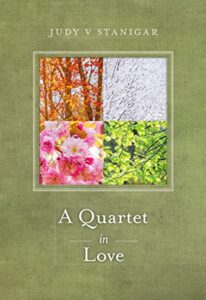The Importance of Connection: An Interview with Judy Stanigar
 I’ve said it before, but I’ll say it again: one of my favorite things about social media is the way it can bring people together who might not normally meet. Last October, I heard from Judy Stanigar (in California), and when I read on her website that “she’s also trying to keep the flowers in her garden from dying,” I knew she’d make a good addition to this interview series! Judy “enjoys writing about people’s frailties, which make them lovable and relatable,” and “she infuses her characters with humor and poignancy in equal measure.” Readers praise Judy’s work as “fascinating and authentic” as well as “profound and filled with hope.” Stories like that are great for the soul, and I hope Judy continues to fill the world with her words. A big thanks to Judy for her time in answering these questions.
I’ve said it before, but I’ll say it again: one of my favorite things about social media is the way it can bring people together who might not normally meet. Last October, I heard from Judy Stanigar (in California), and when I read on her website that “she’s also trying to keep the flowers in her garden from dying,” I knew she’d make a good addition to this interview series! Judy “enjoys writing about people’s frailties, which make them lovable and relatable,” and “she infuses her characters with humor and poignancy in equal measure.” Readers praise Judy’s work as “fascinating and authentic” as well as “profound and filled with hope.” Stories like that are great for the soul, and I hope Judy continues to fill the world with her words. A big thanks to Judy for her time in answering these questions.
Christina: You’re the author of two novels, the most recent of which is Marika’s Best-Laid Plan. Where did the idea for the story come from? How does it differ from your first book, A Quartet in Love?
Judy: The idea of Marika’s Best-Laid Plan first germinated for me years ago when I worked as a therapist in a methadone clinic. I found myself captivated by the population of the heroin addicts, at how different and yet how similar they were to ‘normal’ people like myself, and I had the idea of writing a book where the protagonist, a therapist, may be impaired and struggling with similar or different demons (loneliness; connectedness; wanting love) and how they relate. My first book was looking back at things that happened to me in college, young love and so on, but I wanted to juxtapose it with how love hits you at different stages in life. How unalike and alike it is at the same time. And no matter our age, we all can be fools in love. At the end of the day, we want to feel that special connection no matter our age.
Christina: Speaking of connection, both books involve the power of connection. What is it about connection that you find so compelling to write? Is human connection something you find easy to cultivate? Does your background as a psychotherapist come into play with respect to your focus on connection?
Judy: I think that for me, growing up in a different country and coming to the U.S. as a teenager, feeling foreign and different because my parents were Holocaust survivors, has been a major issue. And as a therapist of many years, I’ve often seen many clients’ problems stem from a feeling of some sort of dislocation, not belonging, that loneliness that comes from feeling disconnected. I also think that in modern societies, like American society, that sense of community, is often missing. And research has shown that when one measures happiness in different societies, the ones that have a high degree of happiness are societies with strong sense of community and belonging.
Christina: Can you expand a bit on how that move when you were a teenager impacted you? How does your history and experience inform your writing?
Judy: Moving to the U.S. as a teen was a difficult time not just for me—I’ve watched my whole family struggle. My parents were born in Europe, came to Israel after the Holocaust, and were middle aged when we moved to the U.S. We all carry with us our pasts and our histories and experiences inform our thoughts and actions throughout our lives. Some believe we can just reinvent ourselves while I believe that “wherever you go, there you are.” Even those who reinvent themselves are reacting to what is there inside them.
Christina: I love hearing about an author’s journey to publication and beyond. Would you share a little bit about yours?
Judy: My journey to publication was fraught with learning as I went along, but a lot of naivete which was quite inexcusable because when first out of college I worked for one of the large publishing firms. So when I completed my first novel, I did all the wrong things like not have it edited or read by beta readers and decided to self-publish on Amazon. With my second novel, I was a bit wiser, and decided to bypass looking for agents, and send it directly to small publishers, but not hybrid presses. I sent it out and went with the first publisher’s offer. I probably should have done my homework, but ultimately, this publisher offered good editing and I was happy with their product.

Christina: According to an Instagram post, one of your plans for this year is to finish your memoir. Why memoir, and why now? What’s the theme of the memoir, and when do you anticipate the book will be available?
Judy: So yes, I am currently writing my memoir. I’m not sure why now, maybe because I’m at an age where I say to myself, “if not now, when?” Also as most Holocaust survivors are dead and their children are aging, I feel that these stories still need to be told. There’s a need to acknowledge that the trauma did not end with their death. There’s a wonderful quote from Jeremiah (although I’m not a religious person this quote sums up the gist of my memoir): “The parents have eaten sour grapes, and the children’s teeth are set on edge.”
I figure it’ll probably take me maybe the rest of the year to complete my manuscript. And who knows when/if it will be published.
Christina: How has writing your memoir been different from writing your novels? Did anything about the memoir writing process surprise you?
Judy: Personally I find writing a memoir much more challenging than writing a novel. To begin with one has to be honest with oneself and dig into ones’ family and self and find things one is not happy to dig into. Secondly, in a novel, if the plot or a character doesn’t work, you can scratch it and change it, the only limit is your imagination. With memoir, you must stick to the truth, even if it’s inconvenient. What’s surprised me as digging into memories from a very young age, what has stayed with me and the things I’ve forgotten but was reminded of by other family members. It’s all been a revelation.
Christina: The description of you on your website reads: “an author, a traveler, an academic, a psychotherapist & a storyteller.” Which of those roles do you enjoy the most? Which comes most naturally to you? Which do you think you’re the best at? If you could add one more descriptor there, what would it be?
Judy: What a difficult question. I know what I love more than anything is traveling. I love seeing different places but mostly because I love to observe different cultures, how people live and what makes them tick. I guess because of that I also loved being a psychotherapist—it’s getting to the heart of who we are and what makes us different or alike. It’s that sort of exploration that drives both my career and traveling, and I guess my writing too. It’s all about what makes us tick. And if I could add one more descriptor it would be friend. Friends are so important to me, and I’d like to believe that I make a good and empathetic friend. At least I try to be.
Christina: Let’s talk a little bit about traveling: What are some of your favorite places to visit and why? Are there any places you have no desire to travel? How can the nontraveler make the idea of traveling feel less daunting?
Judy: So I’ve probably traveled to most of the continents, and they’re all wonderful in their own way, but the place that I found most fascinating, was a safari in Africa. There was something magical about being in the wild in the Olduvai gorge where first man walked the earth. We were told it has to do with genetic recall. I don’t know about that, but it felt magical. Otherwise, I’m drawn to Europe over and over again—the history, the quaint small towns and old cities. I would not go to Russia because my Dad was a prisoner in the Gulag there. So there! I’m not sure what to say to someone who finds traveling daunting because I’d have to first figure out what about traveling is daunting, as I sense that people find it daunting for different reasons. I have a friend who can’t stand the thought of packing and what to take etc. I find that hard myself—I try to take as little as possible and remind myself that I can always buy most of what I need wherever I am.
Judy can be found in multiple places!
Website: https://www.judystanigar.com/
Instagram: @judystanigar
Facebook: @judy.stanigar
Twitter: @JvStanigar
Thanks to Judy for agreeing to this interview! If you know of an artist, author, or podcaster who’d like to be featured in an interview (or you are an author who would like to be featured), feel free to leave a comment or email me via my contact page.


